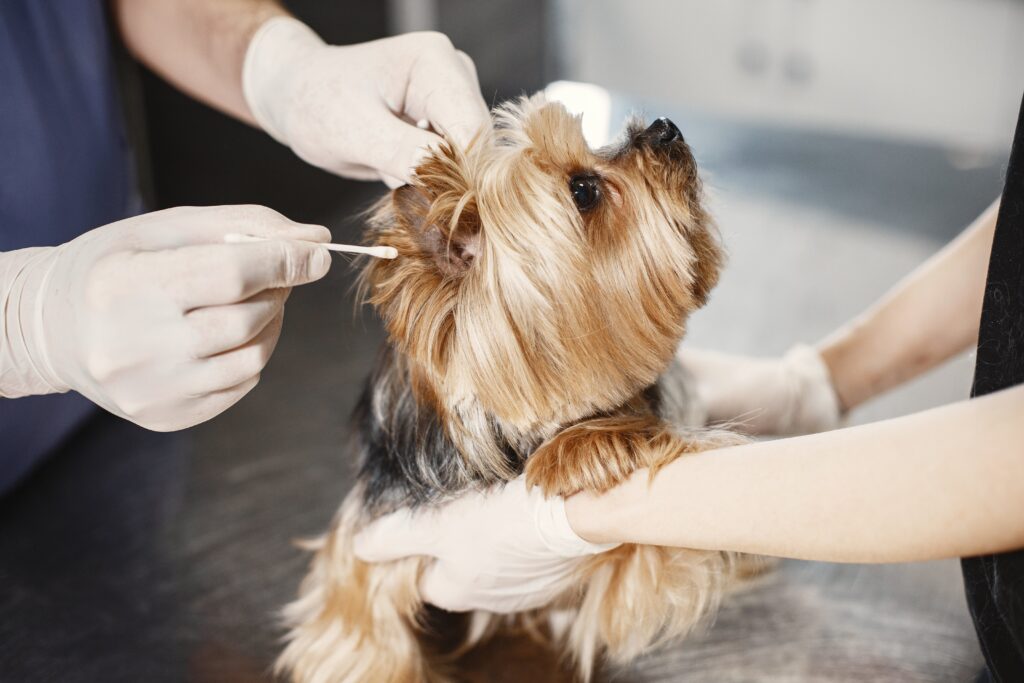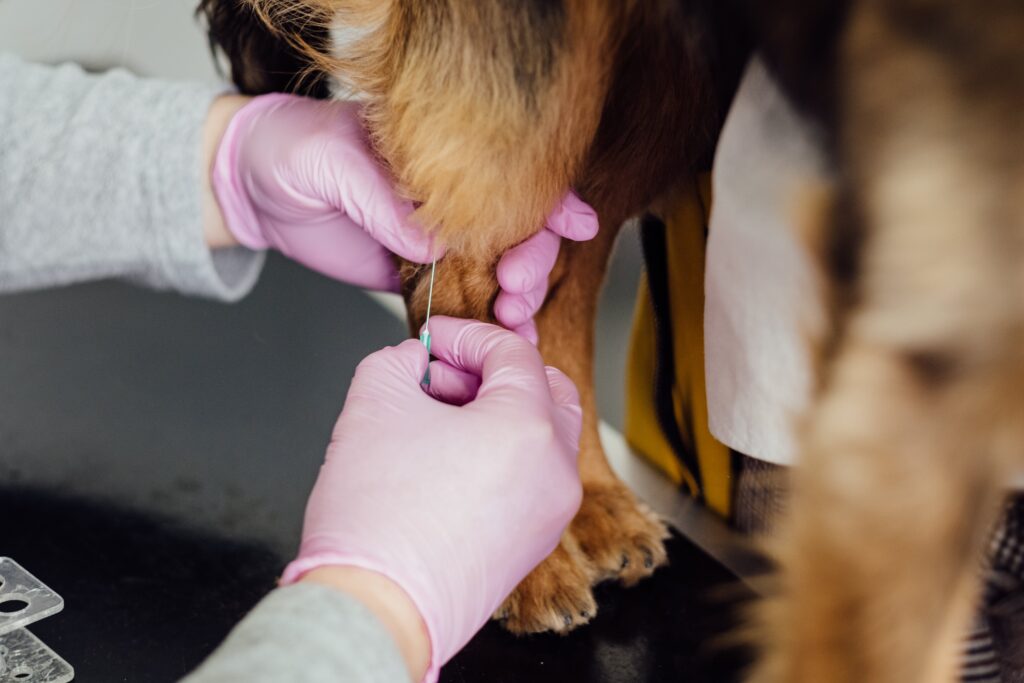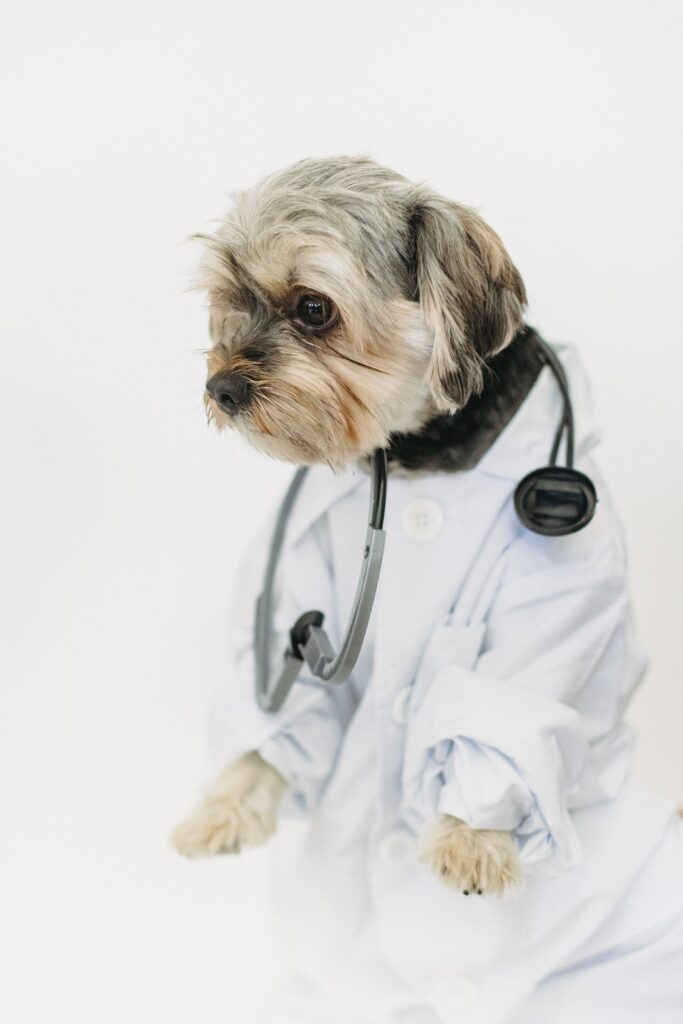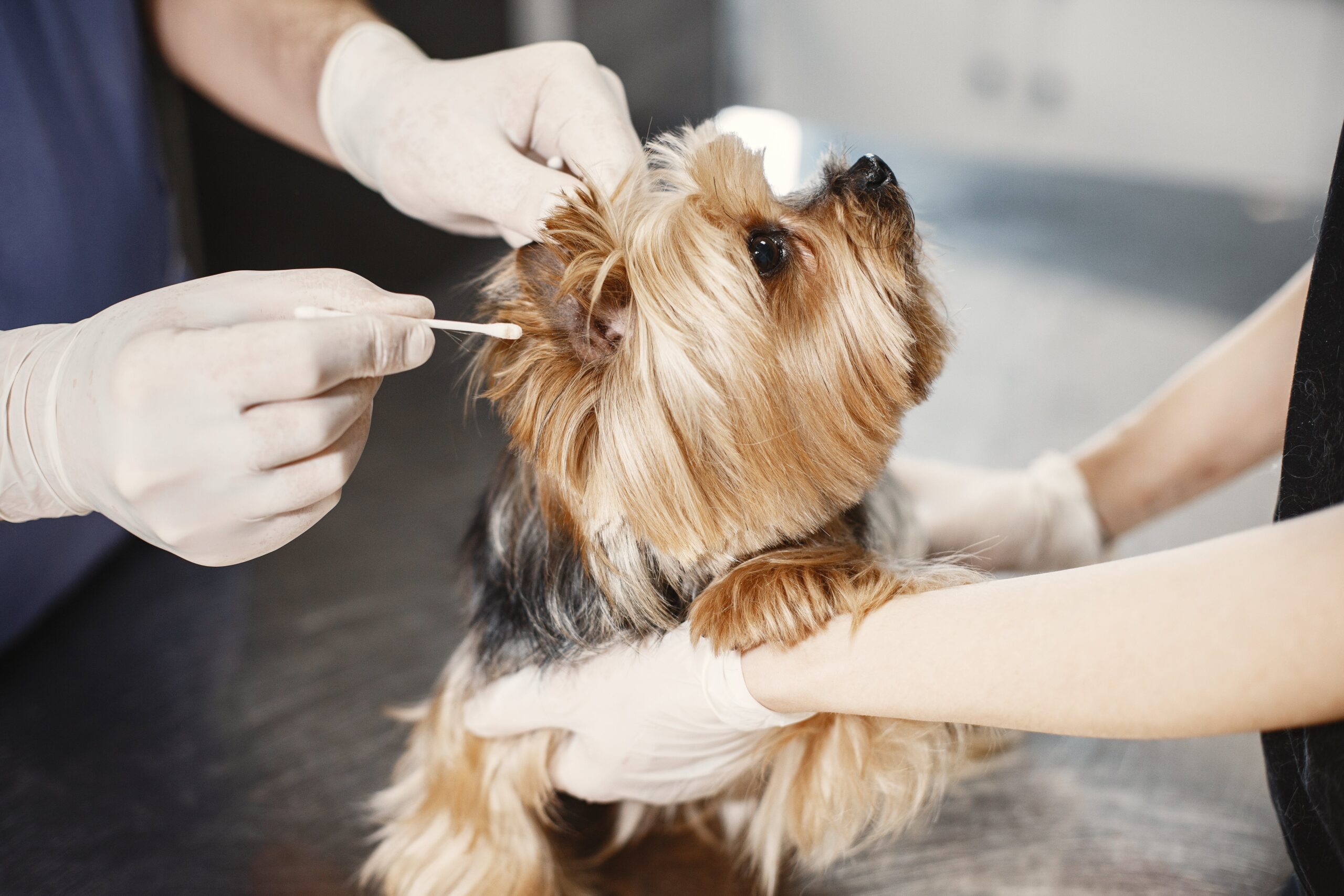Caring for our pets extends far beyond routine walks and meals—it’s about embracing proactive, regular check-ups. In this article, we’ll delve into the importance of regular vet visits for your furry friend’s health. Discover how these check-ups can prevent health issues, enhance your pet’s quality of life, and strengthen the bond between you and your pet. Tailored for our community in the UAE, this guide is packed with insights and tips for pet parents dedicated to their dog’s well-being.

Understanding Vet Visits: Beyond Vaccinations
Regular veterinary visits are crucial for your pet’s health, far surpassing the importance of just vaccinations. These check-ups provide a comprehensive health assessment, including screening for early signs of diseases, dental health evaluation, and nutrition and weight management advice. They are an opportunity for pet owners to discuss behavioral issues and receive tailored advice on the care and wellbeing of their pets. In the UAE, where the climate and environment pose unique challenges to pets, these visits are essential for adapting care routines to ensure your furry friend remains healthy and happy in this specific setting
Spotting Health Issues Early: The Power of Prevention
Early detection of health issues in pets is pivotal for effective treatment and can significantly enhance their quality of life. Regular vet visits allow for the early identification of conditions such as diabetes, arthritis, and heart disease, which may not be apparent to even the most attentive pet owners. These visits provide an opportunity for vets to conduct thorough physical exams, recommend necessary screenings, and offer vital vaccinations. By prioritizing preventive care, pet owners can avoid more severe health problems down the line, ensuring their pets lead longer, healthier lives.
Preventive Care for Dogs through Vaccinations
Vaccinations play a crucial role in protecting dogs from various infectious diseases, ensuring their health and well-being. Vaccines work by stimulating the immune system to recognize and fight off future infections, mimicking a true infection without causing the disease. Titre testing offers an alternative to routine boosters by measuring a dog’s immunity levels to certain diseases, helping to avoid over-vaccination. The UAE has policies in place to make vaccines widely available, ensuring their sustainability and quality, and raising awareness about their importance.

Core and Non-Core Vaccinations for Dogs
Core vaccinations are essential for every dog to shield them from severe and highly contagious diseases such as rabies, canine parvovirus, distemper, and hepatitis. These vaccinations form the foundation of a dog’s preventive healthcare regimen, safeguarding them from these prevalent threats. Typically, dogs receive annual shots, including the Rabies and DHPPi/L vaccines, as a standard part of their health maintenance, underscoring the importance of regular vet visits for lasting canine well-being.
Non-core vaccinations are tailored to a dog’s specific risk factors, including their geographic location, lifestyle, and exposure to other animals. These vaccines protect against diseases like leptospirosis, Bordetella bronchiseptica (kennel cough), and canine influenza. The decision to administer non-core vaccines should be made in consultation with a veterinarian, who can assess the dog’s individual risk and recommend the most appropriate vaccination protocol.
Budgeting for Your Pet’s Health
Managing veterinary expenses is an integral part of responsible pet ownership in the UAE. With the rising cost of pet healthcare, it’s essential to understand how to budget effectively without compromising on the quality of care. This involves exploring pet insurance options, seeking out veterinary clinics with transparent pricing, and understanding the typical costs of routine check-ups, emergency care, and specific treatments. By being proactive and informed, pet owners can ensure their pets receive the necessary care while also managing their finances wisely.
Building a Relationship with Your Vet: A Key to Better Care
Establishing a strong rapport with your veterinarian is crucial for providing the best care for your pet. A trusted relationship allows for open communication, ensuring your pet’s health concerns are thoroughly addressed and personalized care is delivered. It encourages more detailed discussions about your pet’s health, lifestyle, and any specific needs, leading to more accurate diagnoses and tailored treatment plans. Engaging regularly with your vet also builds familiarity, reducing stress for your pet during visits.
Integrating Traditional and Alternative Veterinary Care
Combining traditional veterinary practices with alternative care offers a holistic approach to pet health. This integration can enhance wellbeing through complementary therapies such as acupuncture, physiotherapy, and herbal medicine, alongside conventional treatments. It addresses not only the physical symptoms but also the overall quality of life of pets. By discussing these options with your vet, you can tailor a care plan that suits your pet’s specific needs. This holistic perspective ensures pets receive the most comprehensive care possible.
Special Considerations for Different Breeds
Different dog breeds come with unique health predispositions and care requirements. Recognizing and addressing these breed-specific considerations is essential for maintaining optimal health. For example, brachycephalic breeds like Pugs and Bulldogs require special attention to respiratory issues, while large breeds such as German Shepherds may be more prone to hip dysplasia. Tailoring healthcare, diet, and exercise to the specific needs of your dog’s breed can prevent health issues and enhance their quality of life.

Frequently Asked Questions (FAQs) About Vet Visits
1. How do I register my dog at a vet
Registering your dog at a vet is a simple process that ensures your pet’s health records are maintained accurately. Start by researching local veterinary clinics to find one that fits your needs, considering factors like location, services offered, and recommendations from other pet owners. Once you’ve chosen a clinic, contact them to schedule an initial appointment. During this visit, you’ll be asked to provide basic information about your dog, including their medical history, vaccination records, and any specific health concerns. This registration process lays the foundation for a long-term relationship with your vet, ensuring your dog receives the best possible care.
2. Can I take my dog to any vet?
Yes, you can take your dog to any vet, but it’s essential to find a veterinary practice that suits your and your pet’s needs. Factors to consider include the clinic’s location, hours of operation, available services, and the vet’s expertise with specific breeds or conditions. It’s also beneficial to seek recommendations from fellow pet owners or online reviews. Once you’ve selected a vet, ensure they’re informed about your dog’s health history for consistent and effective care.
3. How do I find a vet for my dog?
Finding the right vet for your dog involves a few key steps:
- Ask for recommendations: Consult with friends, family, and other dog owners about their experiences.
- Research online: Look for reviews and ratings of local veterinary clinics.
- Consider services and specialties: Ensure the vet offers the specific services your pet may need.
- Visit the clinic: Assess the cleanliness, friendliness of staff, and overall atmosphere.
- Schedule a consultation: Meet the vet to discuss your dog’s health needs and see if they’re a good fit.
4. How much is the average cost for a vet checkup?
The average cost for a vet checkup varies widely based on location, the clinic’s services, and the specific needs of your dog. These visits typically include a physical examination, with additional costs for any vaccines, lab tests, or treatments needed. Always inquire about the costs upfront and consider pet insurance to help manage expenses. Affordable veterinary services like those offered by Dubai Municipality include complimentary initial consultations, with annual vaccination packages priced at approximately 210 AED.
5. What tests are included in a regular yearly vet checkup?
A regular yearly vet checkup typically includes the following tests:
- Physical examination: Assessing overall health status.
- Vaccination updates: As needed based on vaccination schedules.
- Parasite checks: Tests for intestinal parasites, heartworms, fleas, and ticks.
- Bloodwork: Basic blood tests to check for common diseases and organ function.
- Urine analysis: To detect urinary tract infections, diabetes, or kidney issues.
This comprehensive assessment helps ensure your pet remains healthy and any potential issues are identified early.
6. How frequently should you visit your vet?
The frequency of vet visits depends on your dog’s age, health status, and specific needs:
- Puppies: Every 3-4 weeks until 16 weeks old for vaccinations and checkups.
- Adult dogs: Annually for wellness exams and vaccinations.
- Senior dogs: Bi-annually, as older dogs may develop health issues that require closer monitoring.
Consult with your vet to determine the best visit schedule for your dog.
7. What should I expect during my dog’s first vet visit?
During your dog’s first vet visit, you can expect:
- A thorough physical examination.
- Vaccination schedule: Discussion and administration of initial vaccinations.
- Parasite control: Guidance on preventing fleas, ticks, and worms.
- Nutrition advice: Recommendations on feeding for optimal health.
- Behavioral advice: Tips for training and socialization.
- Healthcare plan: Setting up a schedule for future visits and vaccinations.
This visit is crucial for setting the foundation for your dog’s long-term health and wellbeing.
8. How can I prepare my dog for vet visits to minimize stress?
To minimize stress during vet visits, consider the following tips:
- Familiarization: Visit the vet for non-treatment visits to get your dog used to the environment.
- Positive reinforcement: Use treats and praise to create positive associations with the vet.
- Comfort items: Bring a favorite toy or blanket to provide comfort.
- Calm behavior: Remain calm and reassuring, as dogs can sense their owner’s anxiety.
- Practice handling: Gently touch your dog’s paws, ears, and mouth to get them used to being examined.
9. What are the signs that indicate my dog needs to see a vet immediately?
Urgent signs that require immediate veterinary attention include:
- Uncontrolled bleeding
- Difficulty breathing
- Severe vomiting or diarrhea
- Suspected poisoning
- Seizures
- Inability to urinate or defecate
- Sudden collapse or extreme lethargy
- Severe injury or trauma
- Persistent coughing or gagging
If you observe any of these signs, contact your vet or an emergency animal hospital immediately.


Leave A Comment